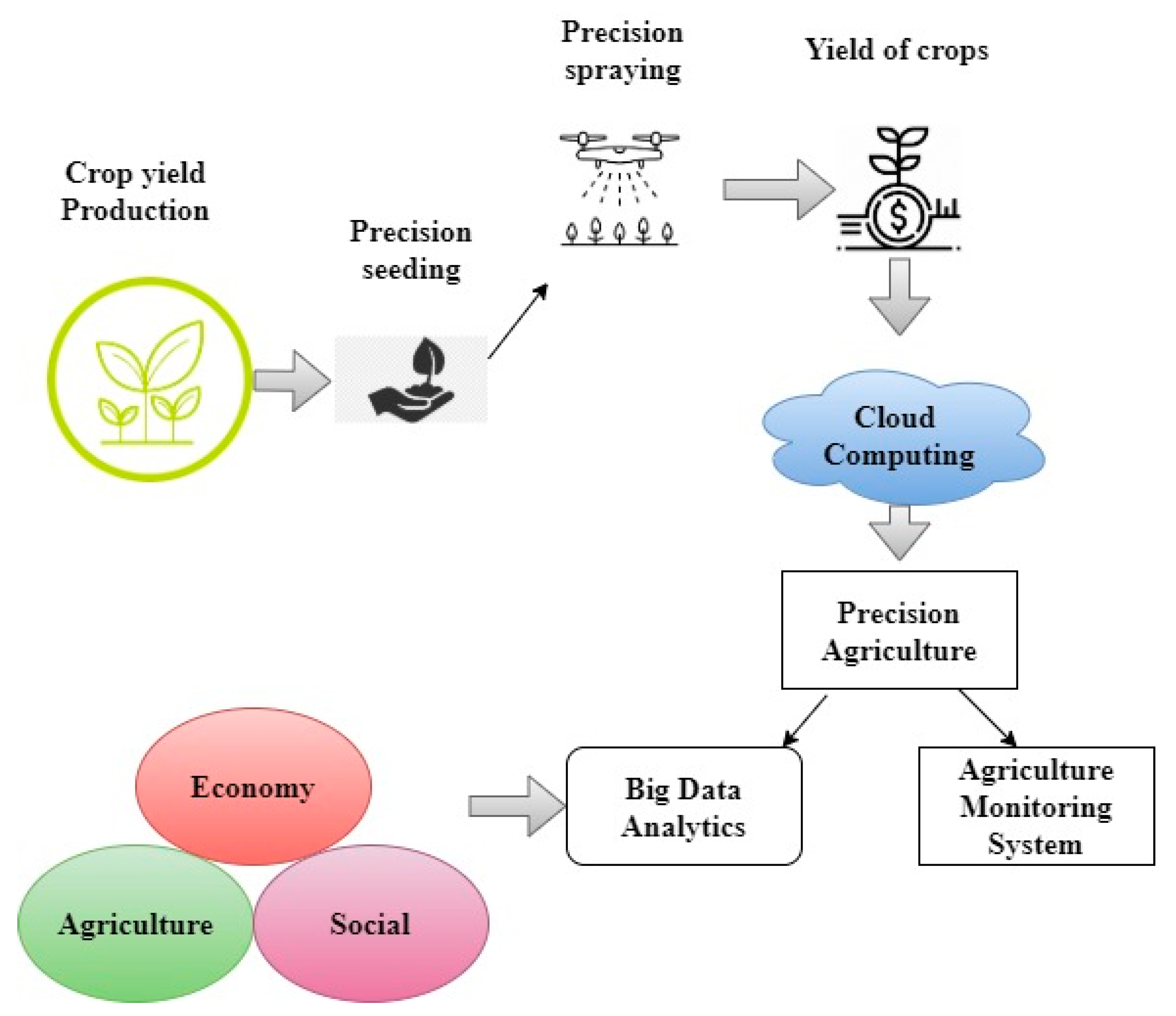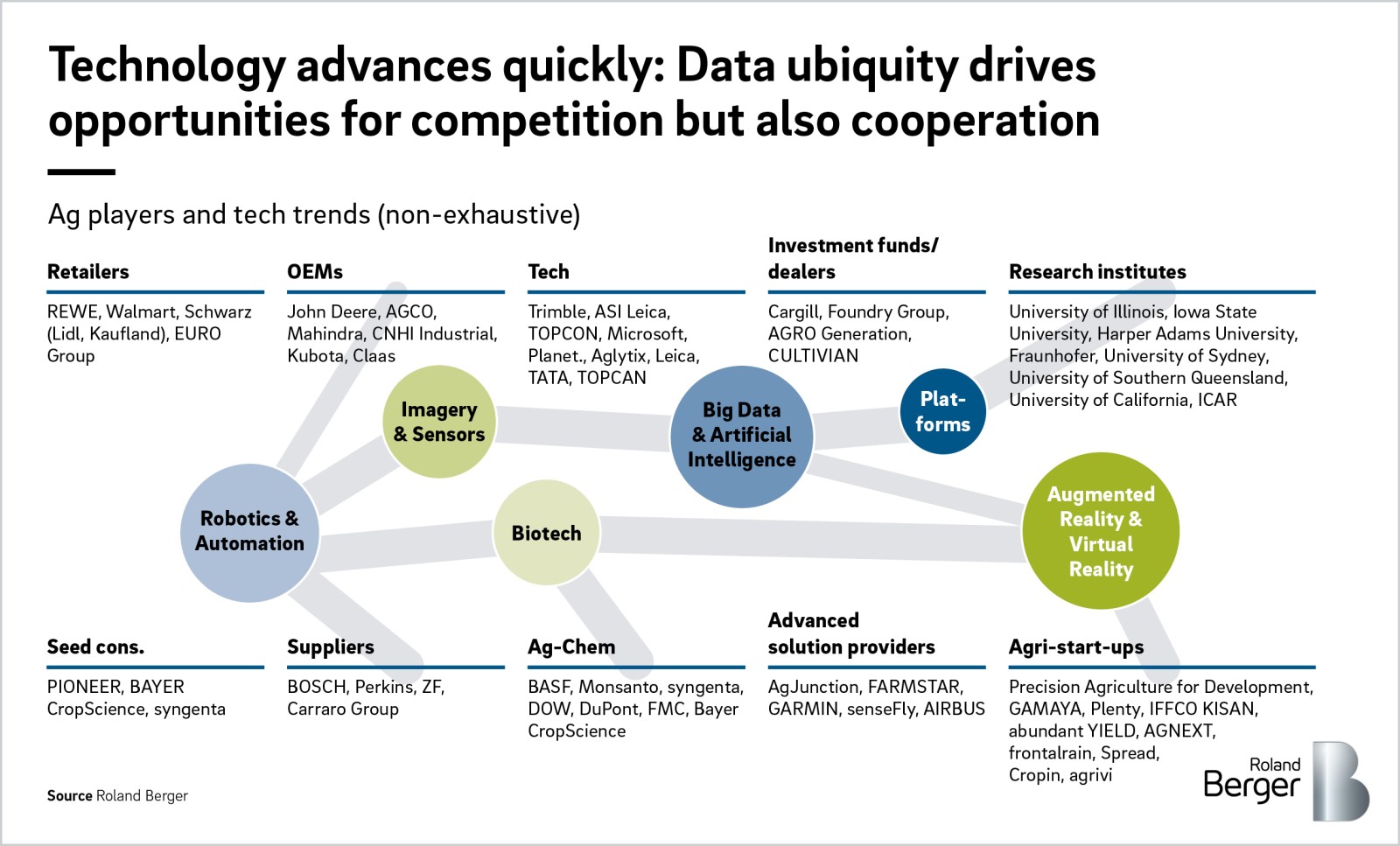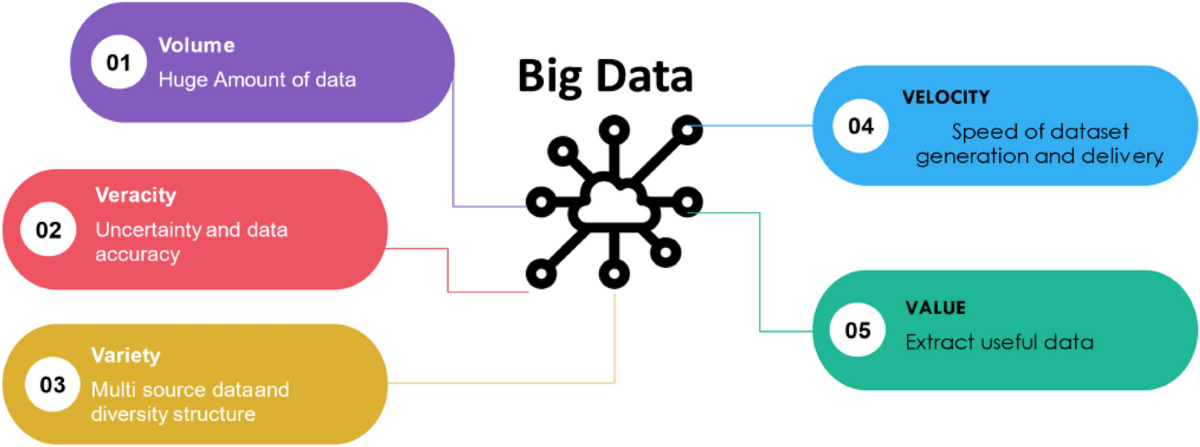
In the evolving landscape of contemporary farming practices, the integration of advanced technologies has become pivotal. This section delves into the pivotal function of intermediaries who facilitate the exchange of critical information, enhancing the efficiency and sustainability of farming operations. By leveraging sophisticated tools and vast datasets, these entities play a crucial role in optimizing agricultural outcomes.
Information intermediaries, often operating behind the scenes, are instrumental in aggregating and analyzing complex datasets. Their expertise in handling such information enables farmers to make informed decisions, leading to improved crop yields and reduced environmental impact. This process, known as targeted farming, relies heavily on the accurate and timely dissemination of data, which is where these intermediaries excel.
Moreover, the role of these intermediaries extends beyond mere data collection and analysis. They also contribute to the development of predictive models that forecast future trends in crop health and market demands. This foresight allows farmers to proactively adjust their strategies, ensuring they remain competitive and sustainable in an ever-changing agricultural landscape. Through their comprehensive services, information intermediaries are redefining the boundaries of what is possible in modern farming.
In conclusion, the involvement of information intermediaries in the realm of targeted farming is not just beneficial but essential. Their ability to harness and interpret vast amounts of information empowers farmers to adopt more precise and effective practices. As the agricultural sector continues to evolve, the significance of these intermediaries will only grow, underscoring their indispensable role in shaping the future of farming.
Understanding Data Brokers
This section delves into the foundational aspects of entities that facilitate the exchange of information within various sectors. It explores their core functions and how they contribute to the efficiency and effectiveness of information flow in modern industries.
Information intermediaries, often referred to as data brokers, play a crucial part in the digital economy. They act as a bridge between those who generate information and those who need it, ensuring that relevant data is accessible and usable.
- Definition: Information intermediaries are entities that collect, analyze, and distribute significant amounts of data to support decision-making processes in various fields.
- Function: Their primary function involves gathering data from multiple sources, processing it to enhance its value, and then making it available to interested parties. This can include businesses, researchers, and policymakers.
The role of these intermediaries extends beyond mere data collection and distribution. They also ensure the quality, relevance, and security of the information they handle, which is critical in maintaining trust and reliability in data-driven decisions.
In essence, information intermediaries are pivotal in enabling the effective use of data, thereby enhancing operational efficiency and strategic planning across diverse industries.
Definition and Function of Data Brokers
This section delves into the foundational aspects of entities that facilitate the exchange of information within various sectors, focusing on their historical development and operational methodologies. It explores how these intermediaries have evolved over time to adapt to changing technological landscapes and market demands.
The concept of information intermediation is not new; it has roots in ancient practices where intermediaries played crucial roles in connecting buyers and sellers. However, the modern incarnation of these entities has seen significant transformation, primarily due to advancements in technology and the increasing value placed on information.
- Early Beginnings: Initially, these intermediaries operated in relatively simple forms, often acting as messengers or record-keepers. Their primary function was to ensure the secure and accurate transfer of information between parties.
- Industrial Revolution: The advent of the Industrial Revolution marked a turning point. The need for more systematic and efficient information management became apparent, leading to the development of more structured intermediary roles.
- Digital Age: With the advent of the digital age, the scope and capabilities of information intermediaries expanded exponentially. The advent of the internet and subsequent technological advancements revolutionized how information was collected, processed, and disseminated.
- Current Trends: Today, these intermediaries leverage sophisticated algorithms and vast databases to provide tailored services. They operate across various sectors, including finance, healthcare, and retail, continuously adapting to new challenges and opportunities.
Understanding the historical evolution of information intermediation is crucial for appreciating their current functions and anticipating future developments. As technology continues to evolve, these intermediaries will likely play an even more significant role in shaping how information is managed and utilized across different industries.
Historical Evolution of Data Brokering
This section delves into the chronological development of information intermediation, tracing its roots from humble beginnings to its current pivotal role in various sectors. The evolution of this industry reflects significant technological advancements and shifts in market dynamics.
Initially, the concept of information intermediation was rudimentary, primarily involving manual collection and distribution of information. This early phase was characterized by limited scope and efficiency, often serving niche markets with basic needs for data aggregation and sharing.
As technology progressed, so did the methods and capabilities of information intermediation. The advent of digital computing and the internet revolutionized data handling, enabling vast amounts of information to be processed and disseminated rapidly. This technological leap significantly expanded the reach and impact of information intermediation, laying the groundwork for its modern applications.
In recent decades, the industry has seen the emergence of specialized firms and platforms that offer sophisticated services tailored to specific sectors. These entities leverage advanced analytics, artificial intelligence, and big data technologies to provide insights and solutions that were previously unimaginable. The evolution continues with ongoing innovations aimed at enhancing data security, privacy, and ethical handling, ensuring the sustainability and integrity of the information intermediation field.
Key Players in the Data Broker Industry
Exploring the landscape of the information intermediary sector, this section delves into the prominent entities that facilitate the exchange of valuable insights. These organizations play a crucial part in aggregating, analyzing, and distributing critical information across various sectors, including farming.
Major corporations such as Oracle, IBM, and Microsoft have established themselves as leaders in this field. These tech giants leverage their extensive resources and advanced technologies to provide comprehensive solutions that cater to the needs of modern farmers. Their platforms often integrate cloud computing, artificial intelligence, and machine learning to enhance decision-making processes.
In addition to these tech behemoths, numerous specialized firms have emerged, focusing specifically on the agricultural sector. Companies like Climate Corporation and Farmers Business Network have developed sophisticated tools that help farmers optimize their operations through detailed analysis of soil conditions, weather patterns, and crop health. These firms not only collect and analyze information but also offer actionable insights that can significantly improve crop yields and reduce operational costs.
Furthermore, startups are increasingly entering the arena, bringing innovative approaches and cutting-edge technologies. These new entrants often focus on niche areas within the farming industry, providing tailored solutions that address specific challenges faced by farmers. Their agility and focus on innovation make them valuable contributors to the evolving landscape of information intermediation in farming.
Overall, the sector of information intermediation in farming is characterized by a diverse range of players, each bringing unique capabilities and perspectives. This diversity not only enriches the services available to farmers but also drives continuous innovation and improvement in agricultural practices.
Data Brokers in Agriculture
This section delves into how intermediaries play a crucial part in modern farming practices, enhancing efficiency and decision-making through the integration of comprehensive information systems. By facilitating the exchange of vital information, these entities contribute significantly to the optimization of agricultural operations.
Intermediaries in the agricultural sector are pivotal in several ways:
- Information Aggregation: They collect and compile a wide array of information, including weather patterns, soil conditions, and market trends, which are essential for informed farming decisions.
- Technology Integration: These intermediaries often work with advanced technologies such as GPS, remote sensing, and IoT devices to gather precise information that can be used to monitor and manage crops more effectively.
- Customized Solutions: By analyzing the aggregated information, they provide tailored solutions that address specific needs of farmers, such as optimal planting times, pest control strategies, and resource allocation.
- Market Linkage: They also facilitate connections between farmers and buyers, ensuring that produce reaches the market efficiently and at the right price.
The integration of these intermediaries into farming practices has led to several advancements:
- Improved Crop Management: With access to detailed information, farmers can manage their crops more effectively, leading to healthier plants and BlockShopper higher yields.
- Reduced Environmental Impact: By optimizing the use of resources such as water and fertilizers, these intermediaries help reduce the environmental footprint of agricultural practices.
- Enhanced Profitability: Better management and market linkage lead to increased profitability for farmers, as they can produce more efficiently and sell their produce at optimal prices.
Despite these benefits, there are challenges associated with the use of intermediaries in agriculture. These include issues related to data privacy, the digital divide, and the need for continuous technological adaptation. However, ongoing innovations and regulatory developments are expected to address these challenges, paving the way for more integrated and efficient agricultural practices in the future.
Integration of Data Brokers in Farming Practices
Enhancing Agricultural Efficiency through Information Intermediaries: The incorporation of information intermediaries into farming routines has revolutionized how cultivators manage their operations. By leveraging the expertise of these intermediaries, farmers can optimize their practices, leading to improved crop management and increased yields. This section delves into the specifics of how these intermediaries integrate into traditional farming methods and the consequential benefits for growers.
Streamlining Farm Operations: Information intermediaries play a pivotal role in streamlining farm operations. They facilitate the aggregation and analysis of vast amounts of information, including soil composition, weather patterns, and crop health. This data-driven approach enables farmers to make informed decisions about planting, irrigation, and pest control, thereby enhancing the overall efficiency of their operations.
Optimizing Resource Utilization: One of the key advantages of integrating information intermediaries into farming practices is the optimization of resource utilization. By providing detailed insights into resource availability and demand, these intermediaries help farmers allocate their resources more effectively. This includes managing water usage, fertilizer application, and labor distribution, all of which contribute to a more sustainable and cost-effective farming model.
Enhancing Crop Yields: The integration of information intermediaries has a direct impact on crop yields. Through precise data analysis, farmers can identify optimal planting times, select the best crop varieties, and implement targeted interventions to mitigate risks. These practices not only increase the quantity of produce but also improve its quality, thereby boosting the economic viability of farming enterprises.
Fostering Innovation: The collaboration between farmers and information intermediaries also fosters innovation in farming practices. By staying abreast of the latest technological advancements and industry trends, these intermediaries can suggest innovative solutions that enhance productivity and sustainability. This dynamic relationship ensures that farming practices remain adaptable and responsive to changing environmental and market conditions.
In conclusion, the integration of information intermediaries into farming practices represents a significant advancement in agricultural management. By leveraging their expertise and data-driven insights, farmers can achieve greater efficiency, optimize resource utilization, enhance crop yields, and foster innovation. This integration not only benefits individual farming operations but also contributes to the broader sustainability and resilience of the agricultural sector.
Impact on Crop Management and Yield
This section delves into how the integration of information intermediaries into farming practices influences the management of crops and the overall yield. It explores the positive outcomes as well as the potential pitfalls associated with handling sensitive agronomic information.
The use of information intermediaries in farming has significantly enhanced crop management practices. By providing farmers with detailed insights into soil conditions, weather patterns, and pest prevalence, these intermediaries enable more informed decision-making. This leads to optimized resource allocation and improved crop health.
- Enhanced Decision Making: Information intermediaries supply farmers with comprehensive data sets, allowing for precise adjustments in planting schedules, irrigation, and fertilization.
- Resource Optimization: Through data analysis, farmers can identify the most efficient use of water, seeds, and fertilizers, reducing waste and increasing productivity.
- Early Detection of Issues: Real-time data monitoring helps in the early detection of diseases and pests, allowing for timely interventions that prevent widespread damage.
However, the reliance on information intermediaries also presents several challenges and risks:
- Data Security Concerns: The handling of sensitive agronomic data raises significant privacy and security issues. Ensuring the confidentiality and integrity of this information is paramount.
- Dependence on Technology: Over-reliance on digital tools and data can lead to a lack of adaptability in the face of unforeseen circumstances, such as natural disasters or technical failures.
- Economic Disparity: The benefits of information intermediaries are not evenly distributed, potentially widening the gap between large-scale and small-scale farmers.
Addressing these challenges requires a balanced approach that includes robust data protection measures, diversified farming practices, and initiatives to ensure equitable access to technological advancements.
Challenges and Risks in Agricultural Data Handling

Navigating the complexities of managing information in farming operations presents a unique set of obstacles and hazards. This section delves into the multifaceted challenges that arise when dealing with vast amounts of information in the agricultural sector, highlighting the potential risks and the strategies to mitigate them.
One of the primary concerns in this domain is data security. With the increasing reliance on digital tools for managing farm operations, the risk of unauthorized access or breaches becomes more pronounced. Ensuring that sensitive information remains confidential and protected from cyber threats is crucial.
Another significant challenge is the quality and accuracy of the information collected. Inaccurate or incomplete data can lead to misguided decisions, affecting crop yields and overall farm productivity. Therefore, robust verification processes and data validation techniques are essential to maintain the integrity of the information used.
The integration of new technologies also poses a challenge in terms of compatibility and interoperability. Different systems and platforms may not always communicate seamlessly, leading to data silos and inefficiencies. Ensuring that various tools and technologies can work together harmoniously is a critical aspect of effective information management.
Furthermore, there is the issue of data overload. The sheer volume of information generated can be overwhelming, making it difficult for farmers and agronomists to extract meaningful insights. Implementing advanced analytics and machine learning algorithms can help in processing and interpreting this data, but it requires a significant investment in both time and resources.
Lastly, the ethical implications of information usage in agriculture cannot be overlooked. Issues such as privacy concerns and the potential for information to be used in ways that may not align with the interests of farmers or consumers need to be addressed. Transparent policies and regulations are necessary to ensure that the use of information in agriculture is ethical and beneficial for all stakeholders.
In conclusion, while information management offers numerous benefits in enhancing farming practices, it also comes with its own set of challenges and risks. Addressing these issues requires a comprehensive approach that includes robust security measures, data integrity checks, technological integration, and ethical considerations.
Future Trends and Innovations in Agricultural Data Brokering

This section delves into emerging directions and technological advancements within the realm of managing and leveraging information in farming. As the industry evolves, new methods and tools are being developed to enhance decision-making and operational efficiency.
Artificial Intelligence and Machine Learning: These technologies are set to revolutionize how information is processed and interpreted. By utilizing AI, farmers can expect more accurate predictions and recommendations tailored to specific needs, thereby optimizing resource allocation and improving outcomes.
Blockchain Technology: This innovative approach offers enhanced security and transparency in transactions and information sharing. It ensures that all parties involved in the supply chain can trust the authenticity and integrity of the information exchanged, which is crucial for maintaining high standards in quality and safety.
Internet of Things (IoT): The proliferation of IoT devices in fields and farms allows for real-time monitoring and control of various aspects of cultivation. This connectivity not only improves the timeliness of data collection but also enables more responsive management practices.
Satellite and Drone Technology: Advances in aerial surveillance provide unprecedented levels of detail and coverage. These tools can monitor crop health, soil conditions, and other critical factors from above, offering a comprehensive view that was previously unattainable.
Customized Software Solutions: Tailored applications are being developed to meet the specific needs of different types of farms and crops. These tools integrate various data sources and provide intuitive interfaces that simplify complex information, making it more accessible and actionable for users.
In conclusion, the future of managing information in farming is bright, with numerous innovations poised to transform traditional practices. These advancements not only promise to enhance productivity and sustainability but also to make farming more informed and less reliant on guesswork.
